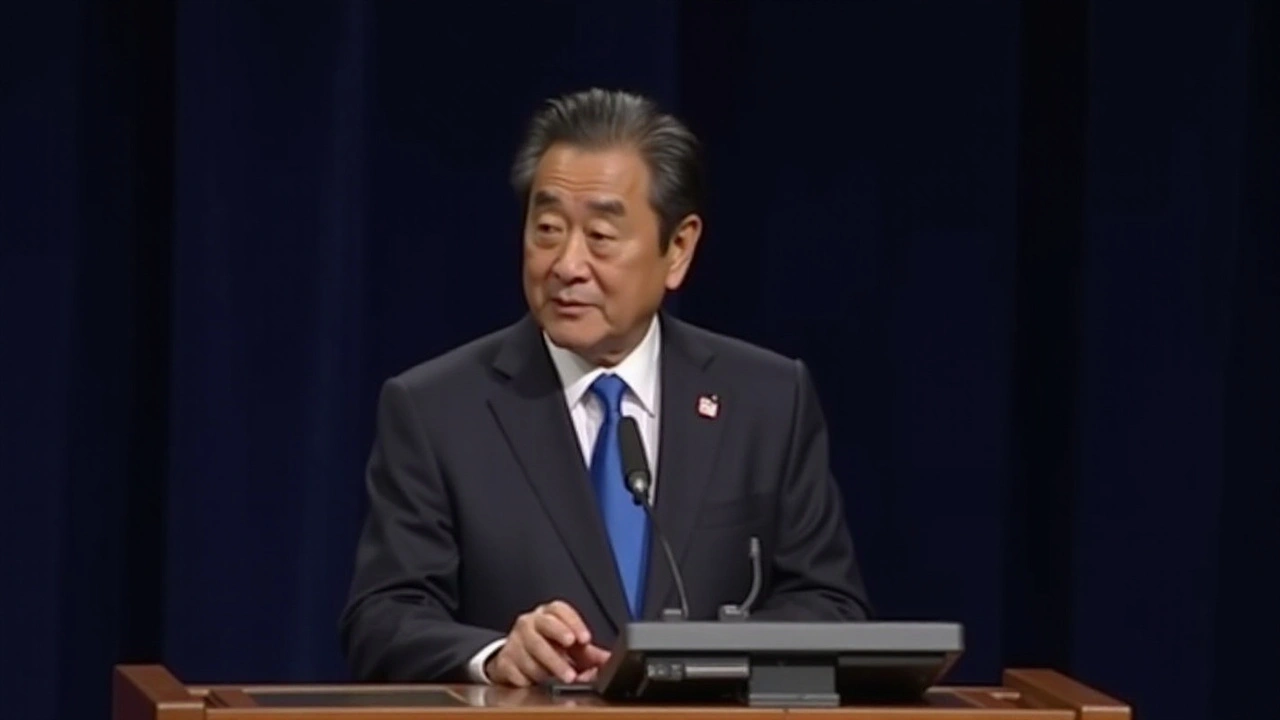
Fumio Kishida’s Unexpected Decision
In a surprising turn of events, Japanese Prime Minister Fumio Kishida has decided not to pursue another term as the leader of Japan's ruling Liberal Democratic Party (LDP). According to Kyodo News, this announcement marks a pivotal moment in the country's political sphere as Kishida's term set to expire in October, draws nearer. The decision not only ends speculation about his political future but also triggers a leadership race within the LDP. As Japan grapples with numerous issues including inflation and public dissatisfaction, Kishida’s withdrawal presents an opportunity for other potential leaders to step forward and shape the country’s future.
Leadership Challenges and Political Setbacks
Kishida’s journey as Prime Minister has been fraught with challenges. Multiple political setbacks have shadowed his tenure, influencing his decision not to seek re-election. These hurdles have included mounting economic concerns, such as inflation that has taken a toll on the Japanese economy, and public criticism over the handling of several key issues. The public's growing dissatisfaction has been palpable, creating an atmosphere of uncertainty and calling into question the government’s ability to navigate through these turbulent times.
The Political Landscape Shifts
Kishida’s decision signifies a major shift within the LDP. As the party gears up for an impending leadership race, new contenders are expected to emerge, each with the ambition to steer Japan in a new direction. This transition phase is crucial for the party; it must demonstrate unity and vision to retain public trust and support. The incoming leader will need to address the pressing challenges head-on, including economic instability, international relations, and domestic policies, to restore confidence among the populace.
Economic Turmoil
Japan's current economic landscape is characterized by uncertainty and turmoil. With inflation rates causing distress among citizens, the government has struggled to implement effective policies to mitigate the impact. The economic strife has been further compounded by global challenges, including supply chain disruptions and fluctuating markets. The next LDP leader will inherit these complex issues and must formulate strategies to strengthen economic resilience and growth. Addressing unemployment and ensuring fair wages will also be critical in stabilizing the workforce and empowering the public.
Public Dissatisfaction
One of the key factors contributing to Kishida’s decision is the mounting dissatisfaction among the Japanese public. Confidence in the government has waned due to perceived inefficiencies in policy implementation and crisis management. Public sentiment, as reflected in various opinion polls, shows a stark disconnect between government actions and public expectations. Social welfare, healthcare, and environmental policies are among the critical areas where citizens demand more attention and transparency from their leaders.
A Pivotal Moment for the LDP
The leadership transition within the LDP comes at a time when the party’s unity and strategic vision are more important than ever. This leadership race will be closely watched by both domestic and international observers, as it provides insights into Japan’s future political trajectory. Potential candidates must articulate clear and pragmatic policies that resonate with the electorate's needs. The new leader’s ability to unify the party and mobilize effective policy measures will play a decisive role in securing their position and ensuring the party's continued dominance in Japanese politics.
Influence on Future Leadership
Kishida’s decision not only opens the door for new leaders but also signifies a change in the political dynamics of Japan. The move is likely to influence how future political campaigns are conducted and how candidates position themselves. As the nation looks ahead, the emphasis will be on visionary leadership that can adeptly manage current challenges while preparing for future uncertainties. This period of transition is an opportunity for rising leaders to bring about innovative changes that align with the public's aspirations and contribute positively to Japan’s progress.
Conclusion
Prime Minister Fumio Kishida's decision to step aside sets the stage for a transformative moment in Japan’s political arena. With the LDP preparing for a new leadership election, the focus now shifts to the emerging candidates who will vie to lead the party and the country. As Japan navigates through economic and political challenges, strong, visionary leadership will be essential in addressing these issues and restoring public confidence. This strategic shift within the LDP will be a determining factor in shaping Japan's future and ensuring the nation's stability and growth in the years to come.
Write a comment